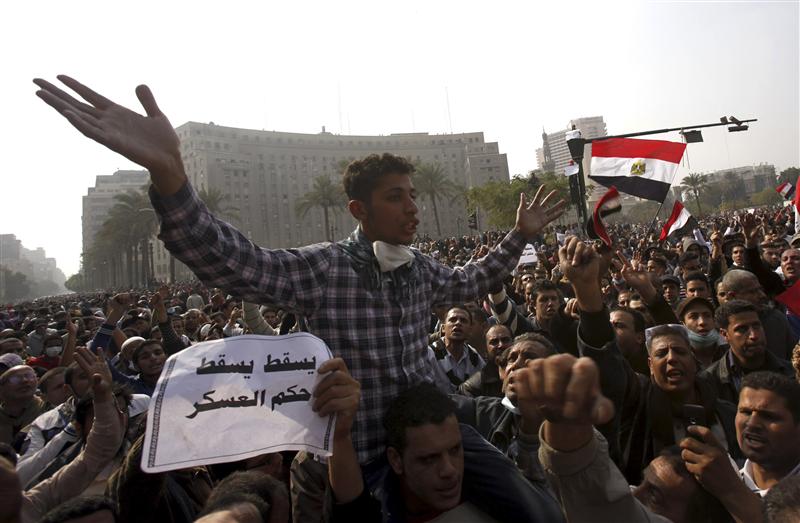Latest NEWS
- Aswat Masriya, the last word
- Roundup of Egypt's press headlines on March 15, 2017
- Roundup of Egypt's press headlines on March 14, 2017
- Former Egyptian President Hosni Mubarak to be released: lawyer
- Roundup of Egypt's press headlines on March 13, 2017
- Egypt's capital set to grow by half a million in 2017
- Egypt's wheat reserves to double with start of harvest -supply min
- Roundup of Egypt's press headlines on March 12, 2017
'The middle class wanted more,' World Bank says on pre-uprising Arab World

CAIRO, Oct. 22 (Aswat Masriya) - Growing and broadly shared dissatisfaction with the quality of life, was the main reason for the uprisings that swept through the Arab world in recent years, the World Bank (WB) found in a 70-page research on economic equality released Wednesday.
The WB says that based on economic data alone, the Arab world uprisings which closely followed one another in 2010 and 2011, "should have never happened."
The decade before the uprisings, the "region had been making steady progress toward eliminating extreme poverty, boosting shared prosperity..." the WB said, adding that "reforms were underway and economic growth was moderate."
Indeed, in Egypt, president Hosni Mubarak who was unseated by an uprising in 2011 was boasting of the country's high economic growth rates in the years leading up to his ouster by angry throngs of Egyptians from all walks of life.
Instead, the WB research suggests that it was dissatisfaction with "quality of life" and frustration with "deteriorating standards of living," especially among ordinary people and the middle class that triggered the uprisings.
A summary of the study said, "the middle class wanted more – it wanted a voice, real opportunities, and accountability."
In the year 2000 Egyptians believed they were "more affluent than they were," the report said. Yet in 2008, it was the opposite.
The report added that in Egypt "average life-evaluation plunged from 5.5 in 2007 to 4.4 in 2010 – a deep drop in the context of improvements observed in socio-economic statistics and growth in per capita incomes."
The study shows that the dissatisfaction in the Arab World, although widespread, was more pronounced in the middle 40 percent of society rather than the bottom 40 percent and adds that the countries most involved in the uprisings, Syria, Libya, Tunisia, Egypt, and Yemen were among the least happy countries in the world.
"The old social contract of redistribution without voice had stopped working. In the Arab world, the middle class wanted a say and more opportunities," the WB said.
The new report does not seem to be optimistic, saying that "post-Arab Spring MENA seemed primed to fall into disarray," given how highly polarised it is and the presence of high proportions of unemployed men, which increases the risk of conflict.
Accoridng to the report, Arab uprisings "did not deliver the change people hoped for and the situation deteriorated significantly in some countries."
It added, "importantly, many of the factors that made people unhappy before the Arab Spring are still present today."
In Egypt, the 2011 uprising was followed by years of political turmoil, which has taken its toll on the economy, driving tourists away and reducing foreign reserves to less than half of what they were under Mubarak.
Egypt is currently holding elections to choose members of parliament, after it has gone over two years without any legislatures.










